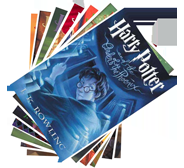(单词翻译:单击)

British and American letter writers to the Financial Times have spent the past few weeks scrapping over whether “one-time” is a better phrase than “one-off”, how far cricket metaphors travel and whether “backstop” comes from baseball or from the older English game of rounders.
过去几周,英国和美国读者致信英国《金融时报》展开激辩,辩题包括“一次性”用“one-time”还是“one-off”来表达更好、板球术语的比喻用法能流传多广,以及“接球手”(backstop)一词是来源于美式棒球还是历史更悠久的英国圆场棒球。
One UK correspondent expressed irritation over the Americans who would have said “the past several weeks” rather than the “past few” in sentences such as the one above.
一名英国读者对美国人把“过去几周”说成“the past several weeks”而不是“past few”表达了反感。
A sub-theme was the infiltration of American and British words into each other’s speech and how bad this was. When Brits use American words, their more fastidious compatriots take it as evidence of declining standards, while Americans see those who adopt Britishisms as pretentious and snobbish.
一个子话题是美式英语和英式英语词汇的相互渗透,以及这是多么糟糕。当某些英国人使用美式英语的词汇时,他们吹毛求疵的同胞会认为,这是英语标准降低的证据,而美国人则觉得使用英式英语的人特别装腔作势。
This linguistic fractiousness has been going on for a long time. In 1828, Noah Webster, champion of a US vernacular that did not look across the Atlantic for validation, published An American Dictionary of the English Language. The languages never diverged much, in spite of Webster’s efforts; UK and US English remain siblings – and, like many siblings, they squabble.
这种语言的龃龉由来已久。1828年,美国本土语言的捍卫者挪亚•韦伯斯特(Noah Webster)出版了《美国英语词典》(An American Dictionary of the English Language),而美式英语并不打算寻求大西洋彼岸的承认。尽管韦伯斯特编纂了这样一部词典,但两国的语言其实从未产生太多差异,英式和美式英语一直亲如兄弟,而就像许多兄弟姐妹一样,它们也会“拌嘴”。
Sibling rivalry is destructive. That is the message of our earliest stories – Cain and Abel, Jacob and Esau. There is extensive online advice on how parents can stop siblings from arguing and fighting.
兄弟姐妹间的争斗是破坏性的。人类最早的故事——该隐(Cain)与亚伯(Abel)、雅各(Jacob)与以扫(Esau)——就告诉了我们这一点。网络中有许多建议,告诉父母如何才能阻止兄弟姐妹间的争吵和打斗。
But siblings learn from each other too. There is plenty of research showing the importance of parental involvement in ensuring children become competent speakers, readers and writers. But a 2001 article in the Journal of Early Childhood Literacy pointed to the role of siblings in developing each other’s language skills. As parents discover, often to their distress, children pick up much of their language from their peers.
但兄弟姐妹也会相互学习。虽然有大量研究表明,父母参与对保证孩子说话、阅读和写作能力养成的重要性,但2001年《儿童早教期刊》(Journal of Early Childhood Literacy)的一篇文章,指出了兄弟姐妹对发展彼此语言技能的作用。父母常常沮丧地发现,孩子的大部分语言是从同龄人身上学到的。
“Even more than peers, siblings close in age are likely to share a common ‘language’ and cultural ‘recipes’,”the study said.
这篇研究报告说:“比一般同龄人更近一步,年龄相仿的兄弟姐妹更可能拥有共同的‘语言’和文化‘食谱’。”
It looked at the sibling interactions of two groups of east London children. In one group, the children, at a Church of England school, were monolingual English speakers with at least one English-born parent.
这项研究考察了兄弟姐妹间的互动,研究对象是伦敦东区的两组孩子。其中一组来自英国国教会(Church of England)的一所教会学校,他们只懂英语,父母中至少有一位是本土出生的英国人。
The other group, in a primary school in Spitalfields, was almost entirely of Bangladeshi origin. In both groups, the researchers found that siblings developed each other’s English, either through school role plays or by telling or reading stories.
另一组孩子来自斯皮塔佛德(Spitalfields)的一所小学,他们几乎全是孟加拉裔。研究人员在两组孩子中均发现,兄弟姐妹或通过学校的角色扮演,或通过阅读或讲故事,发展了彼此的英语技能。
The Spitalfields children were following a long tradition. The area has long received non-English speaking immigrants – French Huguenots, eastern European Jews – who learnt English not from their parents but from their teachers and, more importantly, from each other.
来自斯皮塔佛德的孩子沿袭着当地悠久的传统:该地区长时间来接纳了许多非英语国家的移民——比如法国胡格诺派(Huguenots)教徒和东欧犹太人,他们不是从父母那儿学习英语,而是向老师学习,以及更重要的——彼此学习。
The study found that the learning was not all one-way. The questioning younger siblings forced the older ones to clarify their language.
这项研究发现,学习并不总是单向的。年幼者的提问促使年长者弄清楚自己的语言。
The researchers seem to have found these sibling interactions largely harmonious. But we know that, even when they are not, siblings who mock each other over getting playground slang wrong are also sorting out misunderstandings and setting each other straight on what words mean.
研究人员似乎发现,这些兄弟姐妹的互动大多是和谐的。但我们知道,即便发生不愉快时,比如他们嘲笑对方搞错了运动场上的俚语,他们也是在纠正对语言的错误理解,告诉对方这些词语的确切含义。
That is what our anglophone letter writers were doing too. Speaking two English varieties that are almost entirely mutually comprehensible, they were, in effect, pointing to the few differences that occasionally impede communication, so that people can either understand the other’s metaphors, incorporate them into their own speech, or indicate to the other side when they should stop using a word or phrase if they want to be understood.
这也是那些给我们来信的讲英语的读者正在做的事。他们说着两种几乎完全可以相互理解的英语,因此他们实际上只是在指出二者为数不多的差异,这些差异偶尔会阻碍沟通。如此一来,人们或者可以理解对方的比喻,将其加入自己的语言中,或者可以告诉对方,要想让别人明白你的意思,就应该停止使用某个词或短语。
The US and UK readers of the FT are, of course, a select, literate and (it goes without saying) highly intelligent group, but this smoothing of transatlantic differences occurs among a wider section of both populations too.
英国《金融时报》的英美读者自然是受过良好教育的精英,具有很高的智商(这点无需赘言),但这种抹平大西洋两岸语言差异的努力,也发生在更广泛的两国国民之间。
The US’s cultural reach means that people in the UK are so used to listening to American speech that they barely notice they are doing so, but the linguistic traffic travels in the other direction too.
美国文化影响之大,意味着英国人已对听到美式英语非常习惯了,以至于都意识不到。但同样,美国人也对英式英语习以为常。
American children read the Harry Potter books. Saving Mr Banks, starring the English actress Emma Thompson, was one of the most seen films in the US last week.
《哈利•波特》(Harry Potter)系列小说是美国孩子喜爱的读物。由英国女演员艾玛•汤普森(Emma Thompson)主演的《拯救班克斯先生》(Saving Mr Banks)是上周美国最热门的影片之一。
UK and US readers will no doubt use this column as a prompt to mention yet another phrase the other side uses that annoys them. It may look acrimonious. But what they are really doing is making sure the English language preserves its general unity – and maintains its world domination.
英美读者无疑将继续利用本专栏,提出对方使用的其他让他们不爽的表达。这看上去也许有些尖刻,但他们真正的目的是确保英语保持基本的统一,并维持其在世界上的主导地位。


